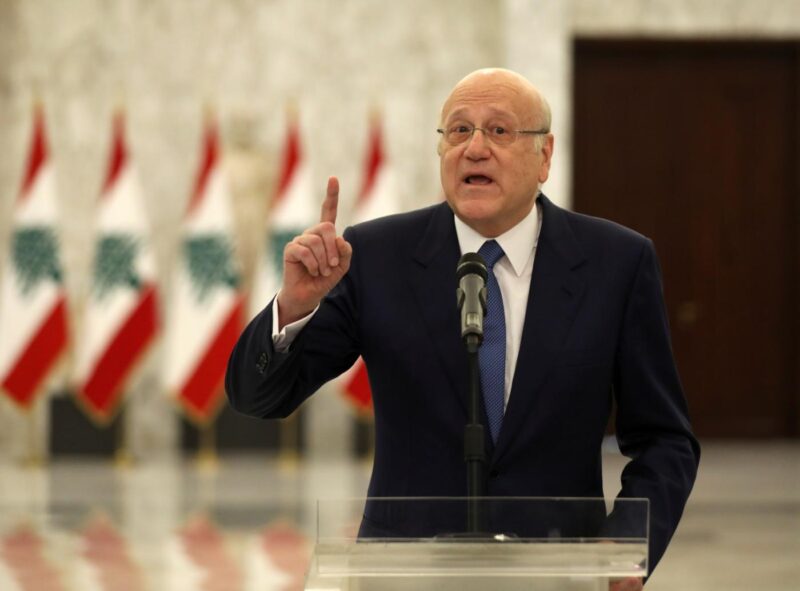Lebanon agrees on new government
Lebanon agrees new government to tackle economic collapse

Lebanese leaders have today agreed a new government after a year of political feuding over cabinet seats that has exacerbated a devastating economic collapse, Reuters reports.
The breakthrough followed a flurry of contacts from France which has led efforts to get Lebanon’s fractious leaders to agree to a cabinet and begin reforms since last year’s catastrophic Beirut port explosion, senior Lebanese political sources said. There was no immediate comment from the French Foreign Ministry.
The crisis, which has forced three quarters of the population into poverty, is the biggest threat to Lebanon’s stability since the 1975-90 civil war.
It hit a crunch point last month when fuel shortages brought much of the country to a standstill, triggering numerous security incidents, mounting concern in the West and warnings of worse to come unless action is taken.
Prime Minister Najib Mikati, a Sunni Muslim, and President Michel Aoun, a Maronite Christian, signed a decree establishing the government in the presence of Nabih Berri, the Shia Muslim speaker of parliament, the presidency said.
Youssef Khalil, a senior central bank official and aide to governor Riad Salameh, was named finance minister in the proposed new cabinet line-up.
Like the outgoing cabinet of Prime Minister Hassan Diab, the new one is expected to comprise ministers with technical expertise who are not prominent politicians but have been named by the main parties.
Political sources said there had been intensive contacts through the night to try to reach an agreement.
Mikati, a politician-businessman who was designated prime minister in July, has previously said he would seek to re-start negotiations with the IMF once his government was formed.
The cabinet formation has been derailed repeatedly by disagreements among political factions over the distribution of cabinet seats.
Mikati is the third prime minister-designate to attempt to form the government since the government resigned over a year ago in the aftermath of the Beirut port blast amidst the worsening economic meltdown.
Mikati was designated after Saad al-Hariri, a former prime minister, abandoned his efforts. Hariri traded blame for the failure with Aoun, an ally of Iran-backed Hezbollah.
Aoun’s political adversaries have accused him and his political party, the Free Patriotic Movement, of seeking effective veto power in the new government by demanding a third of the seats. Aoun has denied this repeatedly.
How to submit an Op-Ed: Libyan Express accepts opinion articles on a wide range of topics. Submissions may be sent to oped@libyanexpress.com. Please include ‘Op-Ed’ in the subject line.
- False Oaths: Ruling and Redemption - January 09, 2025
- Libya’s election body partners with USAID to boost polls - January 09, 2025
- Lebanon faces critical test - January 09, 2025


